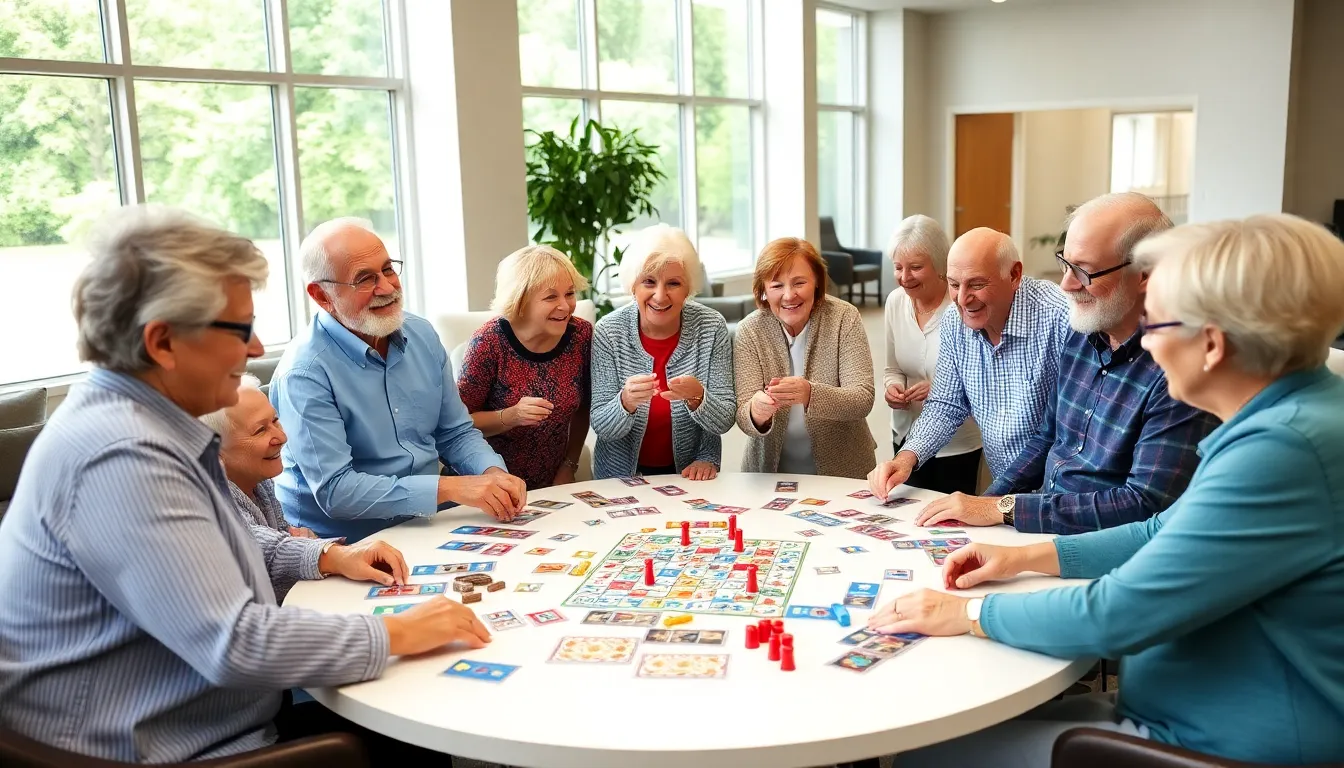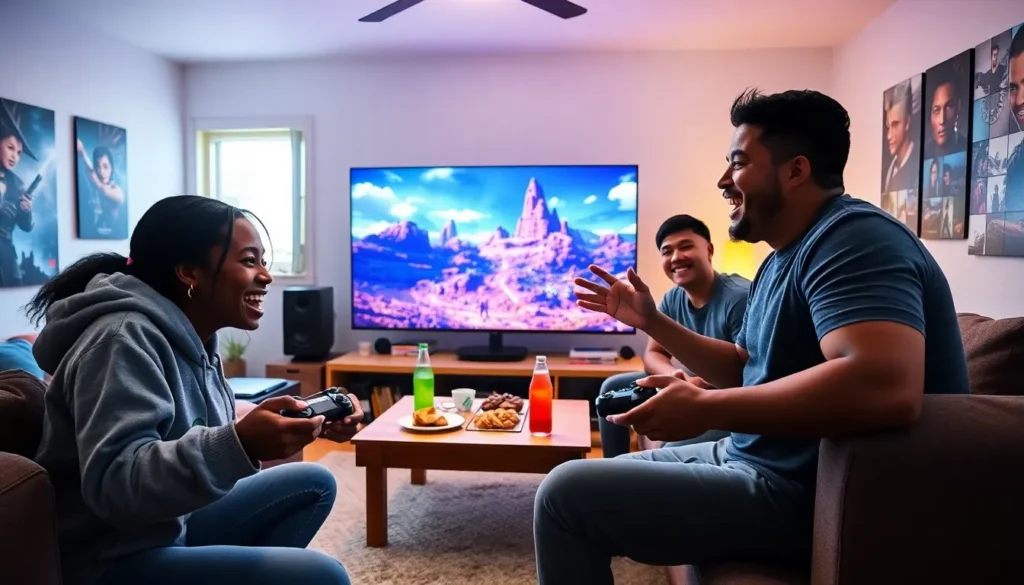Table of Contents
ToggleWhen one thinks of gaming, the image that often comes to mind usually features young adrenaline junkies glued to a screen. But what about our savvy seniors? Yes, they’ve figured out how to work the remote and can even master the art of texting. Let’s jump into the world of war games for elders, where strategy meets fun. In this text, we’ll explore the benefits of these games, tips for selecting the best options, and strategies tailored for the older gamer. With laughter and insight, we’ll uncover why these games are more than just pastimes: they are tools for growth and connection.
Importance of Games for Seniors

Games are often underrated, especially when it comes to our beloved seniors. Yet, engaging in games can be a dynamic avenue for enhancing well-being and mental sharpness within this age group. Simply put, playing games can spark joy. For elderly individuals, games offer a chance to socialize, engage their minds, and even conquer challenges.
Senior citizens can experience feelings of loneliness and isolation, making social interaction crucial for their overall mental health. Introducing games can help these essential connections, breaking down barriers and creating opportunities for shared experiences. Beyond entertainment, games can serve as a bridge to the outside world, ensuring that our seniors remain connected and appreciated.
Also, engaging with games can spark joy and excitement, invigorating the spirit. This playful element contributes to an uplifted mood and fosters a sense of accomplishment. By encouraging our elders to participate in engaging activities, we can help them cultivate resilience and inner strength in the face of aging.
Cognitive Benefits of War Games
War games, in particular, offer a plethora of cognitive benefits. These games typically require players to think critically, strategize, and plan their next moves. As players immerse themselves in these virtual battlefields, they unknowingly engage in mental exercises that can sharpen their skills well into their golden years.
For example, engaging with strategic elements in war games can boost memory retention. Players often find themselves juggling multiple objectives, from managing resources to coordinating troop movements. The brain’s neuroplasticity means it’s always adaptable, thriving on challenges. So, every time a senior strategizes a mission, they are essentially giving their brain a workout.
Further, the analytical skills developed through gameplay can translate into everyday life. Decision-making becomes sharper, and problem-solving abilities gain a new sheen, perfect for adapting to the curveballs life throws their way. Seniors can bring a fresh perspective to challenges, approaching problems with newfound confidence.
Choosing the Right War Game
Selecting the ideal war game for seniors might seem daunting, but it doesn’t have to be. Firstly, consider the preferences of the individual player. Do they prefer historical conflict or fantasy warfare? Understanding their taste will go a long way in ensuring enjoyment.
Social Interaction Through Gaming
Social gaming can enhance experiences tremendously. Choosing games that offer cooperative gameplay options allows elders to engage with friends or family members virtually. This fosters teamwork, communication, and, most importantly, friendships. Games that include chat features or team missions create avenues for connection that are invaluable.
Accessibility Features in Modern War Games
Modern games often come equipped with various accessibility features. Adjustable difficulty settings can allow players to engage at their own pace. Also, simplified controls and tutorial modes can help those who may be less tech-savvy, ensuring they’ll never feel overwhelmed. Game developers are increasingly focusing on creating inclusive experiences.
It’s crucial for seniors to enjoy the game without additional stress. The right game understands and accommodates individual needs, making it easier for them to jump into the action.
Strategies for Playing War Games as an Elder
Engaging with war games also requires a few strategies tailored to the unique needs of older adults, ensuring that the experience remains enjoyable and fulfilling.
Community Feedback and Sharing Experiences
Connecting with other gamers can substantially enrich the experience. Many online forums and communities exist where elderly gamers can share tips, experiences, and even form friendships. Participating in these communities can reduce feelings of isolation and help seniors tap into the collective wisdom of their peers. This interconnected support allows players to learn from one another and grow as gamers.
Building a routine around gaming can also make a significant difference. Dedicating specific times to play not only establishes a habit but provides something to look forward to during the week. It’s like forming a personalized club, where game time becomes sacred, a time for focus, laughter, and perhaps a little friendly rivalry.
Besides, approaching each game session with a mindset of fun can transform the overall experience. The pressure of winning should never overshadow the joy of playing. By fostering an attitude of playfulness, seniors can embrace challenges without succumbing to frustration.







